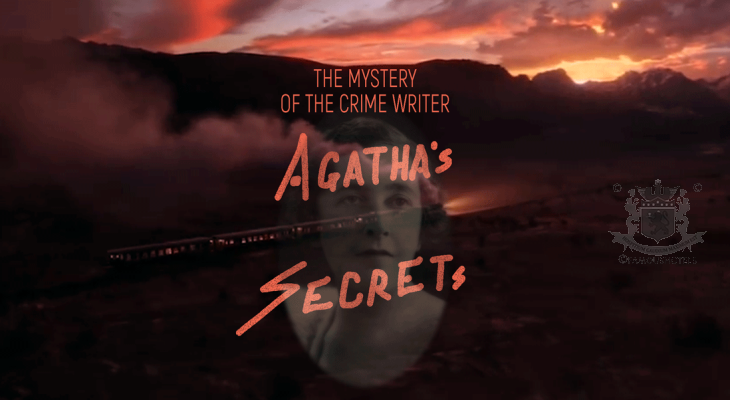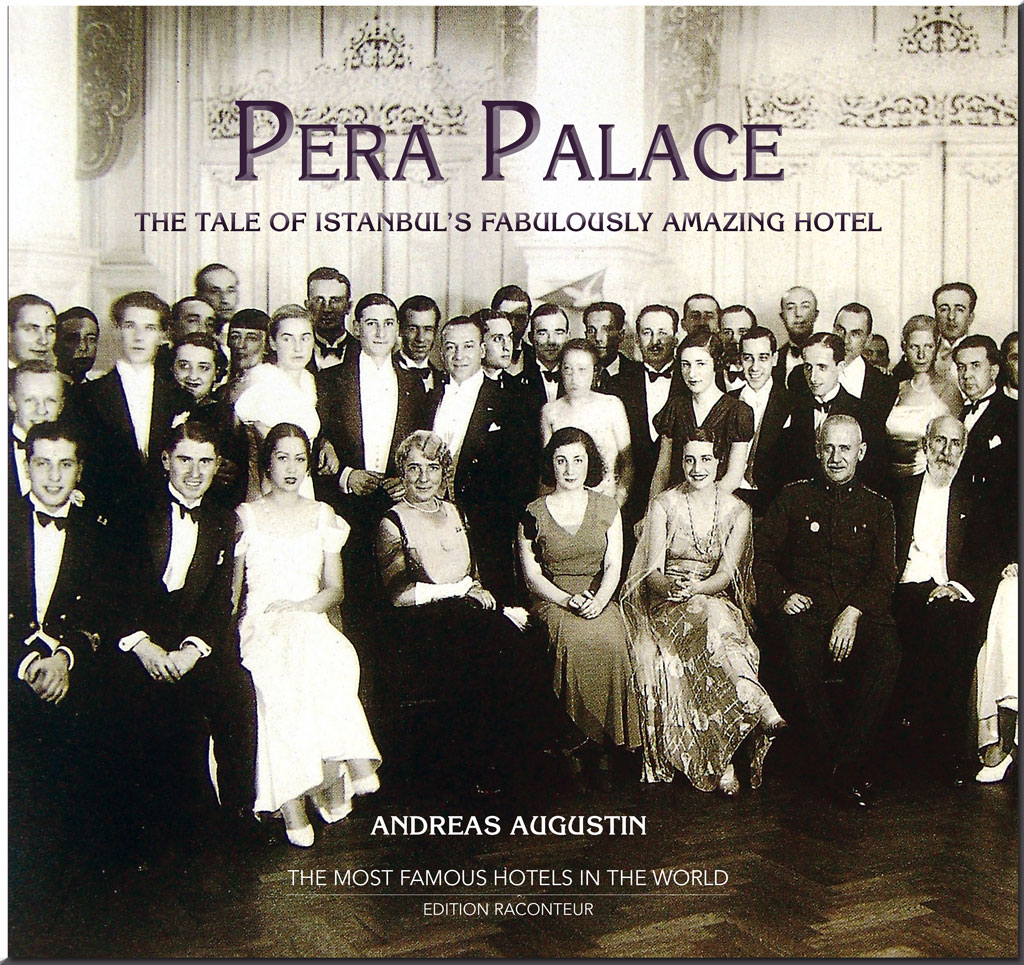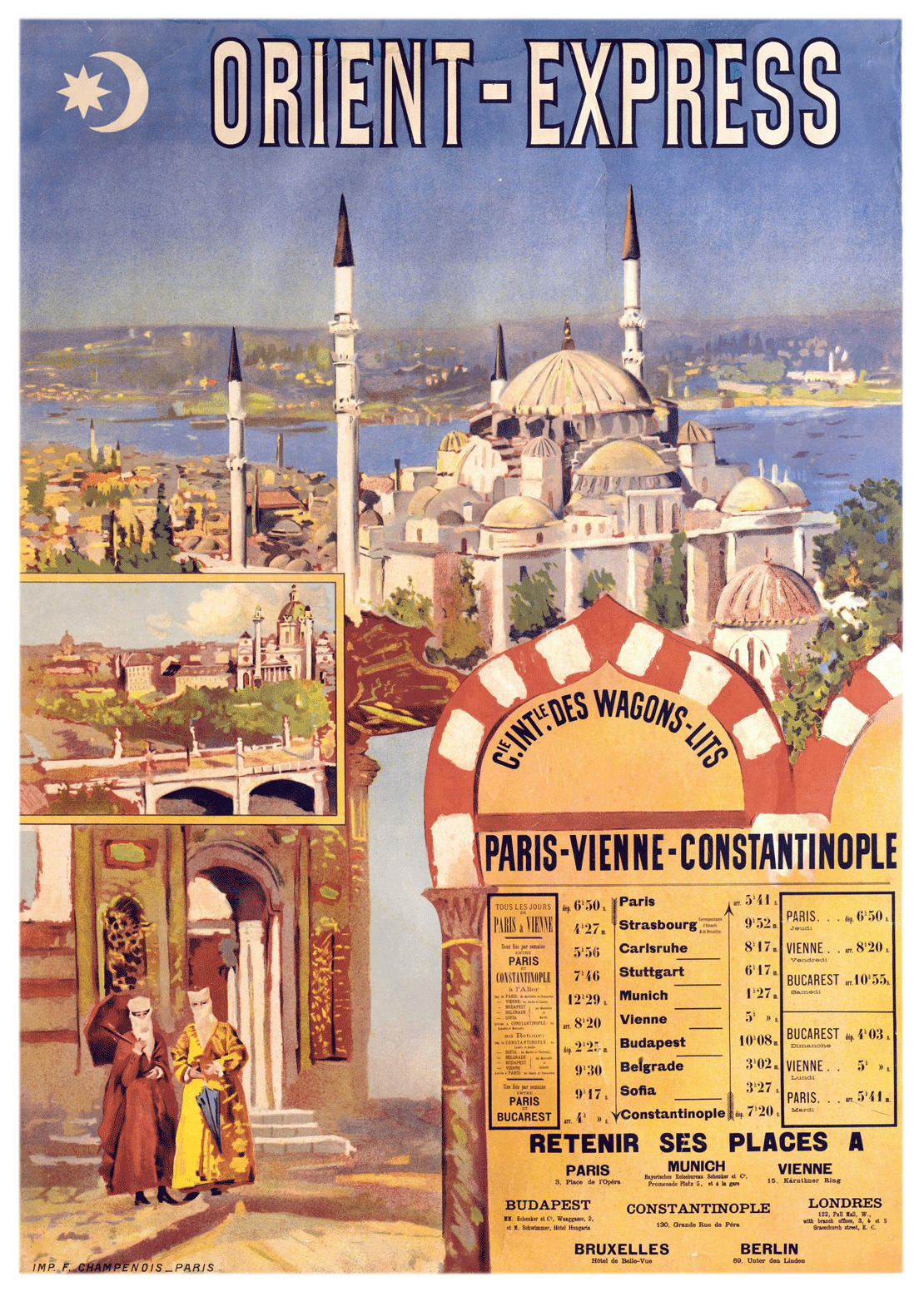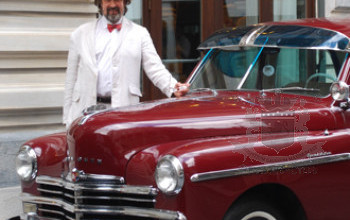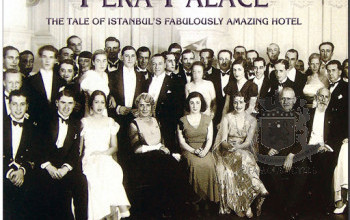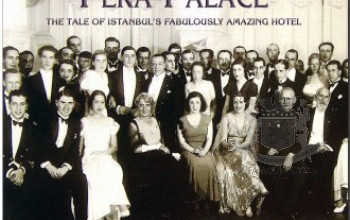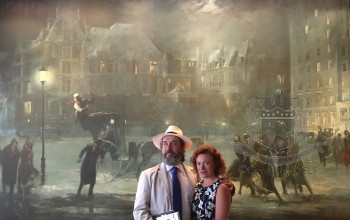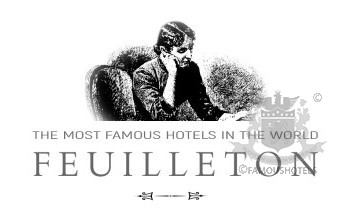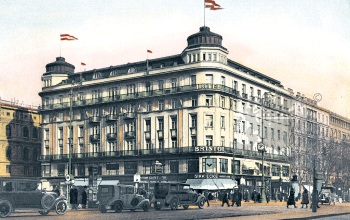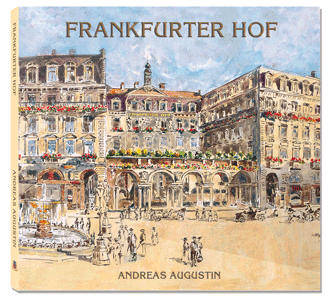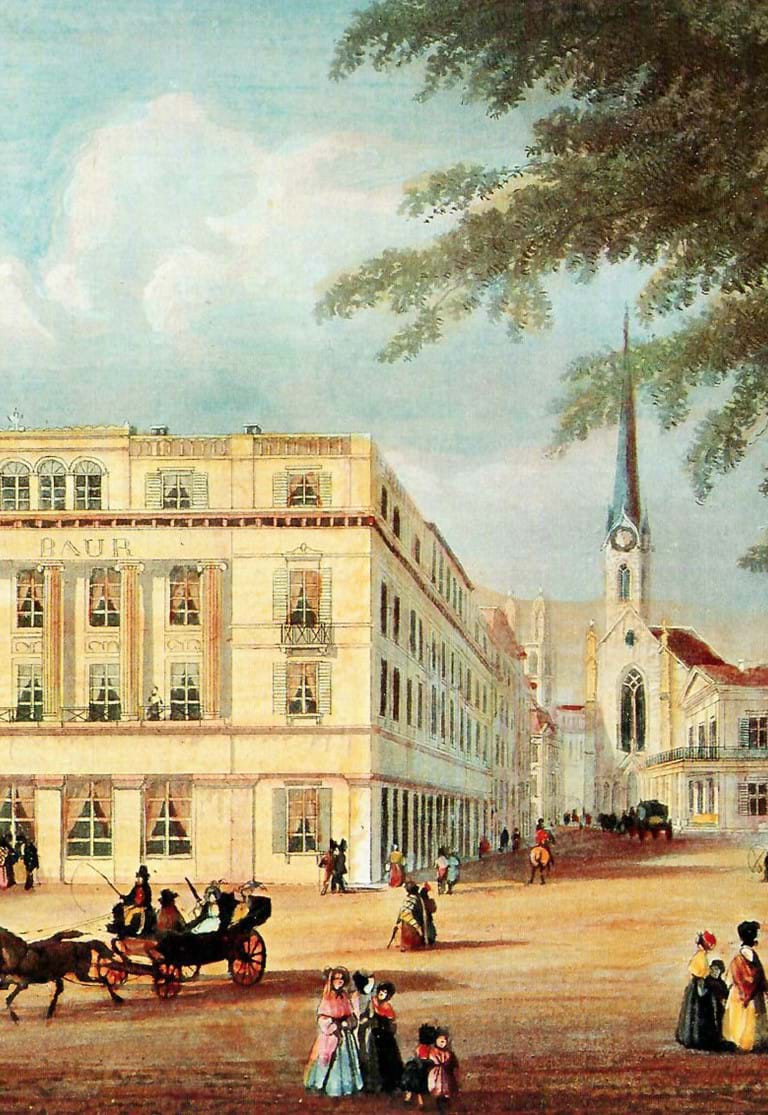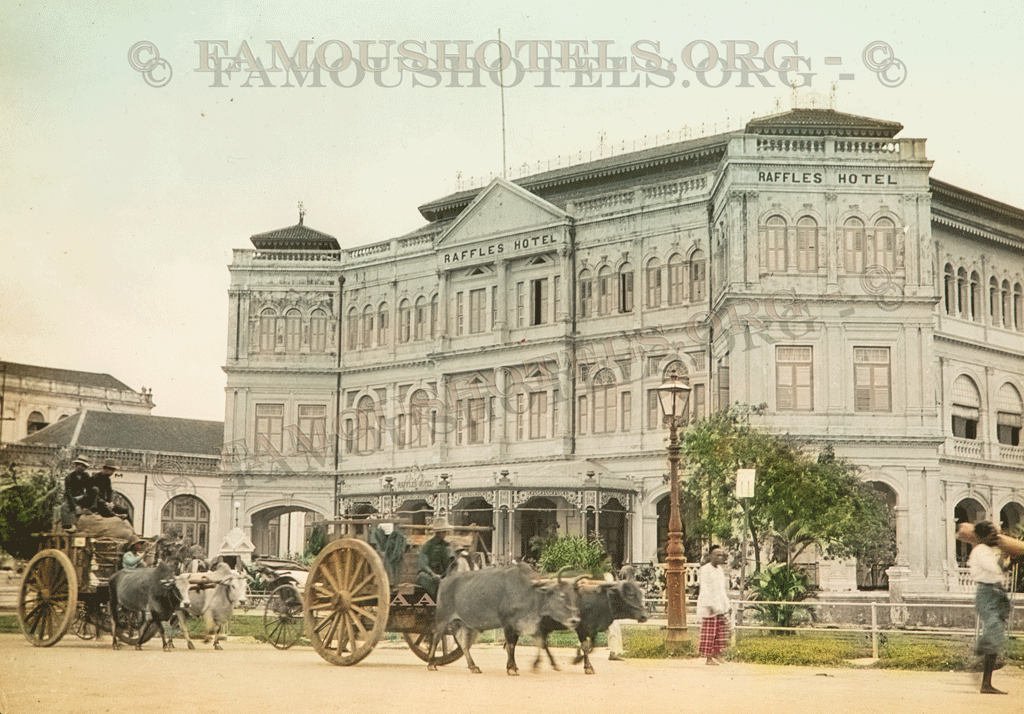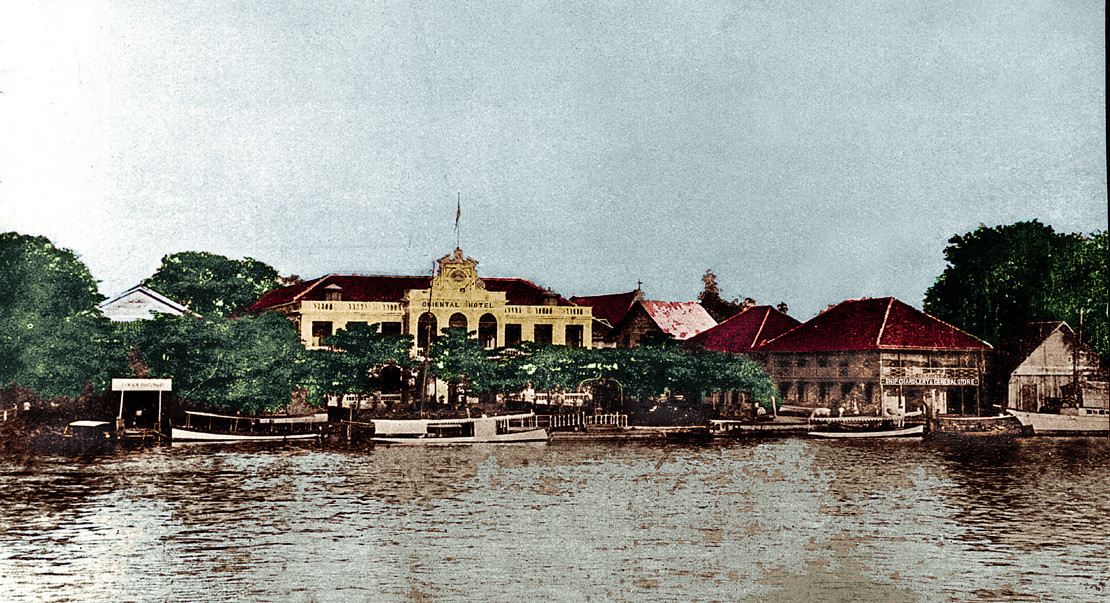Feuilleton 336
( words)
-
Pera Palace Istanbul does it, Hotel Baron Aleppo does it, ...
-
Agatha Christie is their USP, an ambassador
-
Celebrity Hollywood medium Tara Rand employed to contact with Christie's spirit
-
Pera Palace Hotel has dedicated a room to Agatha Christie
-
Hotel's signature restaurant is named Agatha
-
.... all this a respectable tribute to a great writer, who has probably never stayed at the hotel.
The book: The Tale of Istanbul's Fabulously Amazing Hotel — PERA PALACE
She was the queen of crime fiction, the mistress of mystery writing whose tales of murder, deceit and intrigue habitually topped the best-seller lists and entertained generations of avid readers. Her two famous creations, the intuitive, moustachioed Hercule Poirot and the shrewd spinster Miss Marple, are household names across the globe. Agatha Christie, it seems, has always been with us. Except for 11 days in 1926, when all of a sudden she vanished into thin air.

MURDER ON THE ORIENT EXPRESS, 2017:
Killer cast: Kenneth Branagh, Penélope Cruz, Willem Dafoe, Judi Dench, Johnny Depp, Josh Gad, Derek Jacobi, Leslie Odom Jr. and others.
In 1926, Christie had published The Murder of Roger Ackroyd to widespread acclaim. She was living in Sunningdale, Berkshire with her husband Archibald Christie, a dashing officer in the Royal Flying Corps. Her handsome war hero, however, was quite openly having an affair with another woman. Agatha became nervous and depressed. On the evening of Friday 3 December 1926 the writer announced she was going for a drive. The next day her car was found abandoned a few miles down the road with some of her clothes and identification papers scattered across the back seat. Within hours the news was all over the papers. Amid suspicion of suicide or foul play, police dredged a lake. Archibald Christie's telephone lines were tapped and 15,000 volunteers scoured the surrounding countryside.
Although Istanbul is thousands of miles away from Berkshire, no one had the slightest inkling that the answer to the Christie affair might lie on the banks of the Bosporus.
 Eventually, a full 11 days later, Christie was located at a hotel in Harrogate, Yorkshire, befuddled and amnesic. With her picture splashed across the daily newspapers, fellow guests had recognised her and alerted the police. Whether she had truly lost her memory or whether this was merely an elaborate publicity stunt was never established. Christie did not mention the episode in her autobiography. She died in 1976 and the puzzle went unsolved. So where, you may be wondering, does Pera Palas, the famous hotel in Istanbul, come into the equation?
Eventually, a full 11 days later, Christie was located at a hotel in Harrogate, Yorkshire, befuddled and amnesic. With her picture splashed across the daily newspapers, fellow guests had recognised her and alerted the police. Whether she had truly lost her memory or whether this was merely an elaborate publicity stunt was never established. Christie did not mention the episode in her autobiography. She died in 1976 and the puzzle went unsolved. So where, you may be wondering, does Pera Palas, the famous hotel in Istanbul, come into the equation?
PERA PALACE

Agatha Christie's association with Pera Palas is not documented. She did not stay at the hotel when she first travelled to Istanbul. She had chosen the Tokatlian Hotel, which no longer exists. The often quoted tale that she had written Murder on the Orient Express at the Pera Palace appears to be a myth. Or does it not?
Although Istanbul is thousands of miles away from Berkshire, no one had the slightest inkling that the answer to the Christie affair might lie on the banks of the Bosporus.
The Hotel Baron in Aleppo, Syria, was an other logical haunt of the writeress. It is indeed documentd that she stayed there. But did she write Murder on the Orient Express there? No. She didn't.
The story drifted into a slumber until, that was, Hollywood stepped in.
In 1979 Warner Bros saw a box-office hit in Christie's mysterious disappearing act and turned it into a movie, starring Vanessa Redgrave as the missing author and Dustin Hoffman as the intrepid American reporter hot on her tail. Because there was so little evidence to build the plot around, Warner Bros took the unusual step of hiring the celebrity Hollywood medium Tara Rand to contact with Christie's spirit and get to the bottom of the mystery. From the unearthly quarters of the other world came an eerie message: 'The key to my disappearance lies at Pera Palas.' The ghost of Christie had spoken - or so Rand claimed. The medium explained that she had seen a vision of Agatha Christie at the Istanbul hotel, hiding the key to a secret diary under the floorboards of room 411.
Within days swarms of camera crews, photographers and reporters travelled to Istanbul from all over the world to witness the unravelling of the mystery. On March 7 1979 they squeezed into room 411 of Pera Palas. A telephone connection had been established between the hotel and Los Angeles, and Rand was issuing instructions. The information she gave seemed authentic. Sure enough, the floorboards were loose precisely in the spot the clairvoyat indicated. Beneath them was found an old rusty key, some 8 centimetres long. This was all great news for Pera Palas, of course. Not only did the affair provide welcome publicity, it also offered a possibility of some unexpected revenue for a hotel in need of a major revamp. Director Hakan Suezer took possession of the key and staged a press conference, announcing that he would be only too happy to hand the key over to Warner Bros - in exchange for a healthy sum of $2 million.
Over in California, Warner Bros hesitated, before turning once again to Tara Rand who duly went into another of her trances and summoned the ghost of Agatha Christie. 'Only when Mrs Rand has the key in her hand will this mystery be solved,' the spirit warned. Without further ado, Warner Bros dispatched Rand to Istanbul to get hold of the key and solve the enigma once and for all. The American press scrapped to be the first to break the news. This was the kind of story that would not come along twice. The New York Times offered $75,000 to gain exclusivity. And then came the anti-climax. On 30 June 1979, just as the US media was preparing for the denouement of this great twentieth century mystery, the Pera Palas staff went on strike. It would last a whole year. Amid the commotion, the affair of the key was put on the back-burner. Public enthusiasm quickly deflated and the press went home. Warner Bros did release their movie Agatha later that year, but minus the Pera Palas connection.

The "second key".
The fabled key ended up gathering dust in the vault of an Istanbul bank, where it (unconfirmed!) remains to this day. In 1986, a second one was discovered under the floorboards of room 511, directly above 411. Another twist in the tale? Perhaps we will never know.
Today, the Pera Palace Hotel has dedicated a room to the great English crime writer. It displays a historic typewriter and presents a respectable collection of Agatha Christie's books. Even the hotel's signature restaurant is named Agatha—a respectable tribute to a great writer, who, as it stands at the moment, has never stayed at the hotel.
She, herself, never commented on the missing 11 days. Did she excape on the Orient Express to Istanbul? Did she collect experiences and details for her book Murder on the Orient Express during that journey? Did she secretly stay at the Pera Palace Hotel, hiding from the rest of the world?
The answer must be, in the author's opinion, a clear NO. For the follwoing three reasons:
1. Constantinople wasn't the logical choice for a woman travelling alone. Sunningdale, Berkshire, where she was living, is east of London, south of Windsor (today we'd say: near Heathrow). To reach the Orient Express would have been more than complictaed. As the timetable suggests (click to enlarge), the journey took way over two full days and nights from Paris to Constantionple, not to mention the crossing of the channel and the onward journeys, London – Paris vv. In total the time for the journey with perfect connections and no time lost in transit would have been just under three days. Technically it would habe been possible, but as I said, Christie was found at a hotel in Harrogate, Yorkshire, which is 370 kilometres north of her starting point. That doesn't sound as if she had just returned from a 10 days trip to the Orient.
2: Hercule Poirot, her super-detective, like herself, didn't check into the Pera Palace Hotel. She wrote: "At the Tokatlian, Hercule Poirot asked for a room with bath. Then he stepped over to the concierge’s desk and inquired for letters, ..."
The third and final assumption is based on my research in Istanbul: Considering that the whole story only surfaced in 1979, let us check out the situation. By 1979, the famous Tokatlian Hotel no longer exsited. All evidence of Agatha Christie every staying there had disappeared. Manager Hakan Suezer snatched at that golden opportunity and simply moved the entire Christie story over to the Pera Palace, his hotel, deeply in need for a good publicity stunt. Maybe he also wanted to make some quick cash by selling the key he had "found" under the floor to Warner Bros. Maybe all of this was nothing else but a good PR concept, conducted by Pera Palace, Warner Bros and Tara Rand. The accomanying publicity came in handy, as the Pera Palace needed some long overdue publicity. What a shame about the strike.
However, neither Hollywood nor oriental creativity could delete the lines from Agatha Christie's biography and novels. They all state that her preferred and only hotel in Constantinople had always been the Tokatlian Hotel. If there weren't those eleven days, a mystery that neither she herself nor anybody else had ever solved, I would not doubt it for a second.
Sometimes there are large gaps between solid pilars built by facts, like suspension bridges between two solid rocks, which fluctuate violently in the wind of us, the researchers and truth seekers. So for the time beeing I shall close this case, but rest assured, dear rader, I will keep an eye on this file.
Let me finish with one of the last lines of Agatha Christie's Murder on the Orient Express: “Then,” said Poirot, “having placed my solution before you, I have the honour to retire from the case. ...”
Andreas Augustin
Find Out More:
Film: Agatha (1979)
Books: The Lost Days of Agatha Christie by Carol Owens (1996) Agatha Christie and the Eleven Missing Days by Jared Cade (1998)

